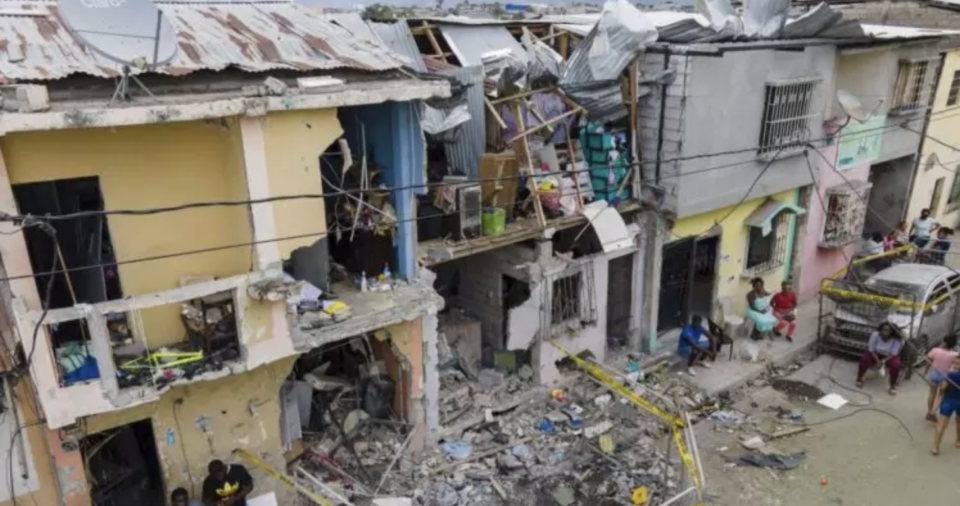
On Sunday, August 14, an explosion shook the residents of the Cristo del Consuelo neighborhood in the city of Guayaquil, Ecuador. The attack left five people dead, around 20 injured, and eight homes destroyed.
According to the police, the attack was aimed at two leaders of rival gangs of drug trafficking and extortion groups, who are fighting for territory and control of the drug trade.
Following the attack, President Guillermo Lasso declared a 30-day state of emergency in the port city of Guayaquil and Durán. This government decision allowed joint military and police groups to act in both cities for surveillance and control tasks. This is Lasso’s third state of emergency during his term of office.
It should be noted that this is not an isolated event in that region, since last April a car with explosives exploded in front of the Regional Prison of Guayas, and in May, the same thing happened outside a Community Police Unit, both without fatalities. In addition, explosives ready to explode were detected in entities such as the Prosecutor’s Office or the Judiciary Council. According to official figures, since the beginning of 2022, 197 events with explosive devices have been registered, of which 49% occurred in Guayaquil, Durán, and Samborondón.
To provide context, Ecuador is a neighbor of Peru and Colombia, and major cocaine producers, and criminal groups from both countries use Ecuadorian territory as a storage and export zone for the drug to North America, Europe, and other markets.
In addition, Guayaquil is home to the most significant state prison, where fights and killings between criminal groups have been reported, mainly due to disputes between drug gangs allegedly linked to Mexican cartels.
Experts indicate that other port cities are suffering levels of violence never seen before, as well as new crimes, which not only include drug commercialization but also contract killings.
The U.S. punishes members of the Armed Forces
On the other hand, the U.S. Ambassador to Ecuador, Michael Fitzpatrick announced in an interview that 18 high-ranking members of the Armed Forces had their visas to enter the United States revoked, as a measure to fight drug trafficking and increase citizen security levels.
The head of the Joint Command of the Armed Forces of Ecuador, General Nelson Proaño, assured that they had not been notified about the identity of the 18 members of the institution, however, he emphasized that administrative measures will be taken against those who are on the list.
The Commander General of the Navy, Brúmel Vázquez, said that he will do whatever is necessary to maintain the integrity of the military forces and avoid undermining the work of the 9,500 members of the Ecuadorian Navy.
On the other hand, the Ecuadorian Attorney General’s Office announced that eight members of the Ecuadorian Navy are accused of allegedly trying to sell cocaine that had been seized days before, and that they were moving it in the hold of a coast guard boat. The complaint was filed by the director of the Insular Regional Directorate of the institution, and the entire crew was arrested. Two of them were remanded in custody, while the other six implicated were given precautionary measures such as a ban on leaving the country and periodic signing.
Image: EFE














